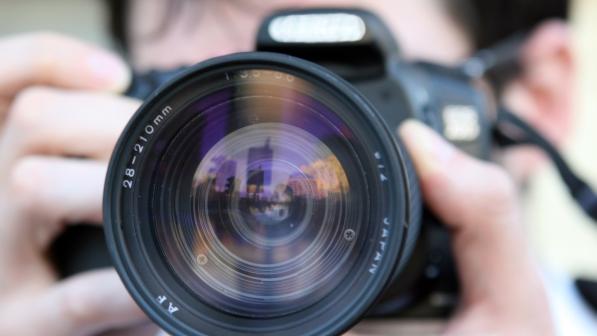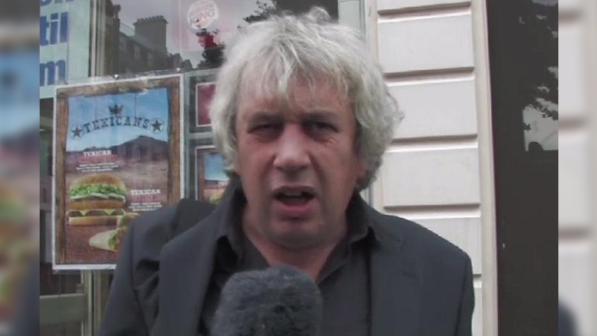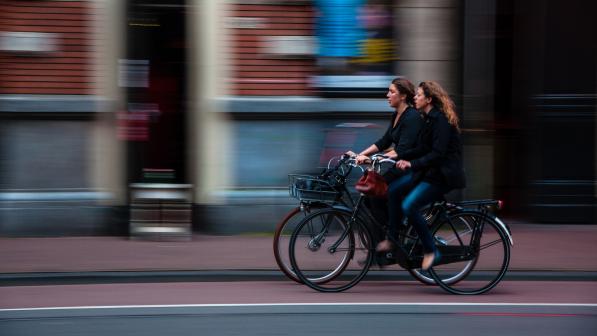Active Travel Media Awards

The Active Travel Media Awards were set up by Dr Rachel Aldred from the University of Westminster and cycling journalist Laura Laker and I have the honour of being on the judging panel.
I was keen to be involved, as I'm a former broadcast journalist with over a decade of working in communications for Cycling UK therefore I have read countless stories in all types of media where cycling stereotypes are rolled out for ease of reporting or to stoke an argument between guests, with the real issues of road safety for all users being ignored. Although Cycling UK do make formal complaints about reporting, it is difficult to see change.
The Awards were founded in 2019 to recognise excellence in media reporting, work that steers away from sensationalism and easy outrage towards a nuanced picture of the transport challenges concerning all of us, particularly the most vulnerable, on our roads.
This year those challenges have come into stark relief, during a global pandemic. As well as affecting how we move around, COVID-19 has exposed and exacerbated existing transport inequalities – but it has inspired a radical global shift towards active travel.
Active travel has arguably never been more important, becoming integral to many people’s lives, sometimes for the first time. That's why it's vital at this time, TV, radio, newspapers, websites and magazines have a healthy and mature public debate about that shift, and about vulnerable road users and road safety.
"There’s plenty of bad reporting on active travel, but also a lot of good work that isn’t always noticed in the same way" explained Dr Rachel Aldred. "Recognising good practice, covering a variety of topics and formats, is important as it both encourages people who are doing a good job, and gives others an example to follow," she added.
Good reporting can change the world – it can make cycling and walking more inviting, and improve safety through campaigning, or by uncovering important issues, shifting attitudes, and with them policies that help protect everyone on our roads
Laura Laker
Laura Laker said "Media reporting of active travel can influence attitudes around how we get around day-to-day, and those we share the roads with, as well as how we make our streets better places for everyone.
"Good reporting can change the world – it can make cycling and walking more inviting, and improve safety through campaigning, or by uncovering important issues, shifting attitudes, and with them policies that help protect everyone on our roads.
"Ultimately good journalism can help more of us reap the benefits of active travel for our health, our purses and the environment."
The Active Travel Media Awards was set up to celebrate and showcase best practice in reporting of active travel, recognising the great work of journalists, bloggers and broadcasters covering these topics and reporting on active travel in general.
Nominations
It's important that good reporting is highlighted and that's why nominations are open until midnight on 27 September and cyclists can get involved by putting forward examples of their favourite articles, programmes, podcasts, blogs, investigations or journalistic campaigns, or even student journalism, by nominating work they admire.
The awards are looking to recognise coverage that is fair and responsible, contributing to public understanding of road safety and active transport in the UK – from reporting of collisions and road danger, to policies and interventions related to active travel, to coverage of research. The awards are co-ordinated by the Active Travel Academy, Westminster University, in collaboration with specialists in active travel, law, and media.
This year there are nine award categories, across print and online journalism, news and features, audio and video and, new this year, a category recognising bloggers. Members of the public, journalists and authors, and their colleagues, can nominate exemplary work in the field, published since 1 October 2019. Nominees can be UK-based individuals, those working for UK-based media outlets, or pieces covering the UK from abroad.
Categories:
- News (written word): written news report, published in print or online
- News (broadcast): news report broadcast on TV, radio, podcast or online
- Features (written): written feature story published in print or online
- Features (broadcast): TV, film, radio, podcast entries, up to 120 minutes long
- Local media: print, online or broadcast entries from local media outlets
- Campaign or long-term follow-up story by a news outlet or journalist
- Investigative journalism: a deep investigation or piece of journalistic research into a topic
- Student journalist: entries must have been published or broadcast (including on student journals / student websites)
- Blog: written in print or online
How to nominate
Just fill in a ATA Media Awards Nomination Form and email it to [email protected], with the subject line ‘Media Awards’
Nominations will be considered, shortlisted, and judged by an expert panel.
Winners will then be announced at a live, virtual event on 26 November at 6pm.
To get a flavour of the awards you can watch the video that includes last year's winners.
The awards are part of the Active Travel Academy at the University of Westminster who also have an Active Travel Podcast.



